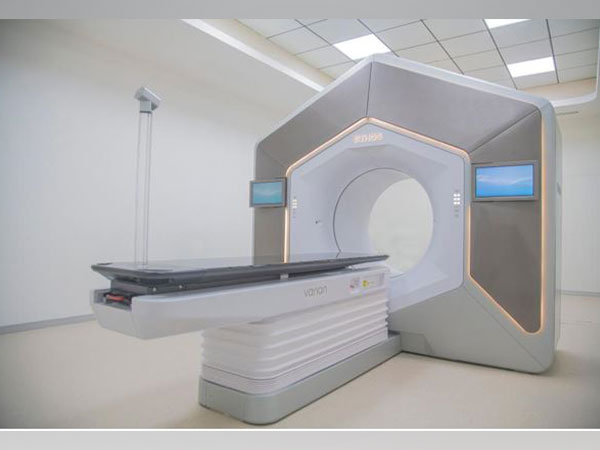Mauritius Inaugurates National Cancer Centre with IAEA Support
Mauritius faces a growing cancer burden with increasing cases of complex cancers such as head and neck, prostate, thyroid, and neuroendocrine tumours.

Mauritius marked a significant milestone in its healthcare system with the inauguration of the National Cancer Centre on May 8. This state-of-the-art facility, developed with nearly a decade of support from the International Atomic Energy Agency (IAEA), promises to transform cancer care for the nation's 1.2 million residents.
At the opening ceremony, Dr. Kailesh Jagutpal, Minister of Health and Wellness of Mauritius, highlighted the centre’s role in enhancing healthcare delivery by providing comprehensive oncology services, including advanced nuclear medicine. "This ambitious project will undoubtedly improve our healthcare delivery system, providing free healthcare to all citizens and helping position Mauritius as a centre of excellence for cancer care in the region," he said.
Mauritius faces a growing cancer burden with increasing cases of complex cancers such as head and neck, prostate, thyroid, and neuroendocrine tumours. The new centre aims to address these challenges with advanced diagnostic tools like PET-CT and SPECT-CT imaging, supported by the IAEA's extensive training and capacity-building initiatives.
The IAEA’s involvement dates back to 1983 and has included training for nuclear medicine professionals, delivery of PET/CT equipment, and strategic advice on resource management and quality assurance. These efforts have been instrumental in preparing Mauritius to utilize cutting-edge nuclear medicine technologies effectively and safely.
The IAEA’s technical guidance also ensured that the new facilities met the highest operational and safety standards. "To elevate cancer care in the country, integrating advanced technologies with comprehensive training programmes will be essential for ensuring high-quality care that is safe and effective," emphasized Peter Knoll, an expert medical physicist from the IAEA.
Mauritius’ advancements in radiation safety infrastructure have been recognized as best practices for other Small Island Developing States (SIDS), promoting regional collaboration and knowledge sharing. "Because SIDS often face constraints due to their size and limited resources, they really benefit from strong South-South initiatives that boost regional collaboration," said Javier Romero, coordinator of the IAEA’s Subregional Approach to the Pacific Islands (SAPI) programme.
The National Cancer Centre exemplifies the long-term support provided by the IAEA through its technical cooperation programme and initiatives like Rays of Hope. "This collaboration is a model of how targeted interventions and global partnerships can effectively address critical health issues, improving lives and shaping the future of healthcare in not just one country but an entire region," said Meena Singelee, Head of the IAEA Liaison Office in Geneva.
The inauguration not only represents a leap forward in cancer diagnosis and treatment capabilities but also underscores Mauritius' commitment to equitable access to high-quality cancer care for all its citizens.
- READ MORE ON:
- IAEA
- Mauritius
- National Cancer Centre










